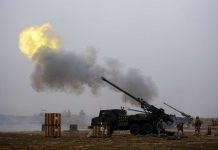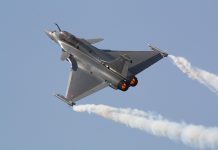
The above image is for representational purposes only.
German Chancellor Friedrich Merz announced that Germany will finance the production of long-range missiles within Ukraine, just days after lifting restrictions on the range of Western-supplied weaponry to Kyiv. This development was revealed during an unscheduled visit by Ukrainian President Volodymyr Zelenskyy to Berlin on Wednesday.
At a joint press conference, the two leaders also revealed plans to initiate intergovernmental consultations between Germany and Ukraine later this year, aiming to strengthen ties in the defense sector. A memorandum of understanding, signed by their respective defense ministers, outlines the framework for this collaboration.
Germany’s defense ministry emphasized that this investment will allow Ukraine to acquire a “substantial” number of long-range missiles in 2025, with the first shipments expected in a matter of weeks. The announcement follows Merz’s earlier statement that donor countries would no longer enforce range restrictions on weapons supplied to Ukraine, though he did not specify which systems this applied to. In addition to Germany, the U.K., France, and the U.S. are known suppliers of long-range arms. Russia strongly criticized the policy change, labeling it as “dangerous.”
Standing beside Zelenskyy, Merz described the move as marking “the beginning of a new kind of military-industrial collaboration between our nations, with significant potential.” The German defense ministry said the new aid package totals approximately €5 billion (around $5.65 billion), prompted by intensified Russian aerial attacks—the most severe since the full-scale war began.
Beyond supporting domestic weapons production in Ukraine, Germany will provide additional air defense systems, replenish ammunition supplies, and contribute financially to battlefield maintenance, as well as military and satellite communication capabilities in Ukraine.
Noticeably absent from the discussion was any mention of Germany’s Taurus long-range cruise missile, widely regarded as one of the most advanced of its kind. The previous German government, led by Olaf Scholz, had declined to send Taurus systems due to concerns that German personnel might be required to operate them, potentially implicating Germany more directly in the conflict.
Despite earlier hesitations, Germany remains a vital supporter of Ukraine’s military defense—second only to the United States in total aid. “Our military assistance will not only continue, but it will also expand,” Merz stated after the bilateral talks.
However, specific details about future aid are expected to remain limited. The current administration has moved away from the openness seen under Scholz, deciding to withhold public disclosure of weapons shipments. The online tracker listing German military contributions has been archived, and Merz confirmed during the press conference that no further details on defense support would be released.




